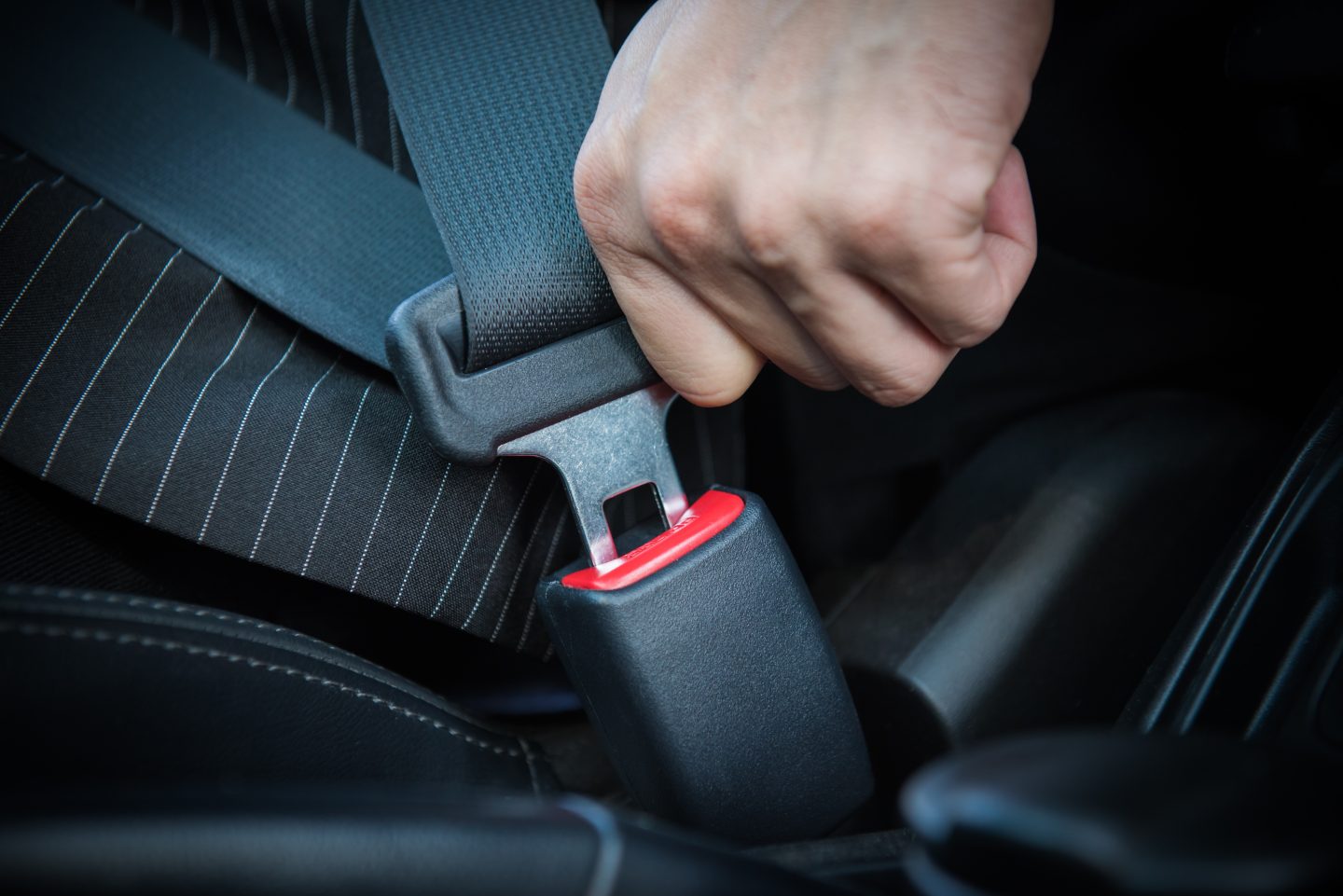- 49% of young drivers (18-24) have travelled in a car in which someone wasn’t wearing a seat belt, in the past year, according to Brake’s survey of drivers.
- Wearing seat belts in front seats of a car became mandatory on 31 January 1983. Wearing seat belts in the back seats of a car became mandatory in 1991.
- Figure for drivers killed whilst not wearing a seat belt are from table RAS 41001, Table RAS41001, Strategic Framework for Road Safety outcome indicators, Great Britain, annual from 2005, Department for Transport, 2018.
- The new seat belt reminder regulations, due to come into force in September 2019, are being set by the United Nations Economic Commission for Europe (UNECE) and will see front seats using occupant detection systems with audible warnings and rear seats utilising audible warnings when the belt is unclipped while the car is in motion
- The Brake survey of 2,000 drivers highlighted a clear trend: the younger the driver, the more likely they were to have been in a car with someone not wearing a seat belt in the past year (see Fig. 1)
- Data from Brake survey of 2,010 drivers, conducted by Surveygoo in 2018
Young drivers are nearly three times more likely to be in a car with someone who isn’t belted up compared to all drivers and more than eight times more likely than drivers over 65. These findings come from a survey of 2,000 drivers, commissioned by Brake and launched on the anniversary of seat belt wearing first being made mandatory in the UK, 36 years ago today (31 January 1983).
These findings follow on from statistics released by the Department for Transport last year, which showed that 27% of the 787 car occupants who died in 2017 were not wearing seat belts. That equals 212 lives which potentially could have been saved if a seat belt was being used, more than four every week.
Most concerning of all, these statistics showed a 7-percentage point rise on 2016 (20%), indicating that non-seat belt use is increasing.
Brake volunteer, Jeremy Williamson, from the Wirral, has first-hand experience of the devastation that can be caused by not wearing a seat belt. 20 years ago, four of his friends were involved in a car crash. Tragically, three of his friends were not wearing seat belts and were all killed, whilst the one car occupant who did wear a seat belt survived.
Tragedy struck Jeremy once again recently, when his brother was killed in a car crash after crashing into a tree on a rural road – he too, was not wearing a seat belt. Following these devastating losses, Jeremy has put his energies into running his own business, educating young drivers on key road safety messages.
Brake believes that the answer to the growing problem of non-seat belt use lies in the safe system approach to our roads, where vehicles are designed to eliminate risk through technology. European legislation is currently being passed which will make seat belt reminder systems for all seats in new cars mandatory from later this year.
This move was backed by 8 in 10 drivers in the survey, who stated that seat belt reminders should be required to be fitted for all seats in a car. Notably, younger drivers were less likely to support seat belt reminders in all seats, compared to older drivers, further indicating a potential lack of understanding of the importance of the seat belt in the younger generations.
Commenting, Josh Harris, director of campaigns for Brake said: “Seat belt wearing became compulsory almost 40 years ago and so it comes as a real shock to hear half of young drivers admit they’ve been in a car with someone not belted up in the past year. We know seat belts save lives and yet there are still four people a week who needlessly die on our roads when not belted up.
“Soon we will see seat belt reminders made mandatory on all seats in new cars - a great step forward. Unfortunately, we’ve found that young people are most exposed to this issue and they are far less likely to be purchasing new vehicles. We need the government to target safety campaigns at the younger generations to make sure they hear loud and clear that seat belts save lives. Ultimately every death on the road is preventable but a death of someone not wearing a seat belt could so easily be avoided.”
Commenting, Brake Volunteer Jeremy Williamson said: “I would not want anyone to go through the terrible experiences that I have - words can’t describe what it was like to attend my best friends’ funerals, on consecutive days, nor the complete devastation of losing your brother in a road crash.
“No one should die on our roads, certainly not because they weren’t wearing a seat belt, and that is why I work so hard now to educate young drivers. My friends and my brother would likely still be here if they had been wearing their seat belts, so I can’t stress enough how important it is to buckle up before you set off."
